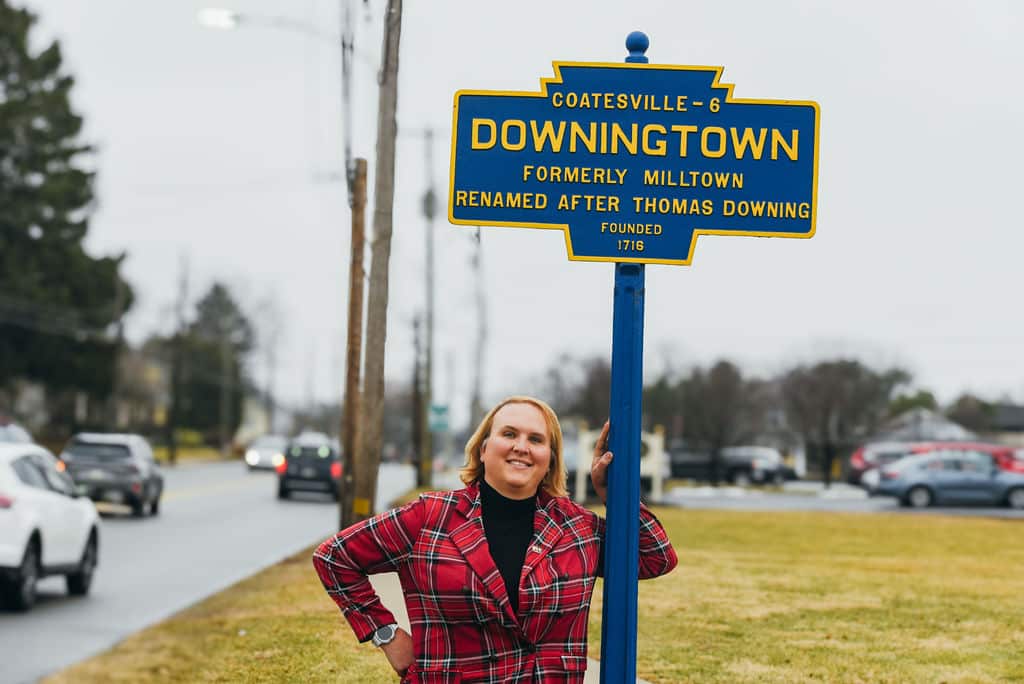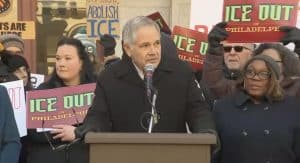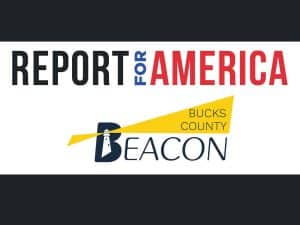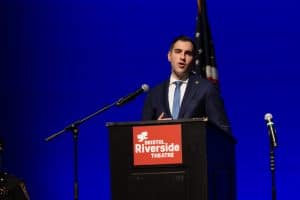Erica Deuso made history earlier this month by becoming the first transgender person to be elected mayor in Pennsylvania, and the fourth to do so in the country. The mayor-elect of Downingtown has received national attention for her win, and the milestone it marks.
She, however, is more interested in being a “Good Neighbor” than a “first.”
Deuso’s campaign focused on the needs she saw in her neighbors: affordability, traffic reduction, solutions to flooding, and protection from federal abuses of power. She made a point of focusing on local issues, not her identity as a trans woman.
The success of Deuso’s campaign is representative of a wider trend we’ve witnessed this election cycle: when a politician genuinely has a sense of what people care about and actually bothers to address it, people overwhelmingly show up and vote. Right now, an issue on most Americans’ minds is affordability. When asked about this very issue, Deuso’s opponent Richard Bryant suggested that Downingtown residents being priced out can just find somewhere else to live. Deuso’s overwhelming win with 65% of the vote, then, wasn’t so surprising at all.
I spoke to Deuso about her campaign, her goals as the mayor, and how her identity as a trans woman impacted her issues-driven campaign.
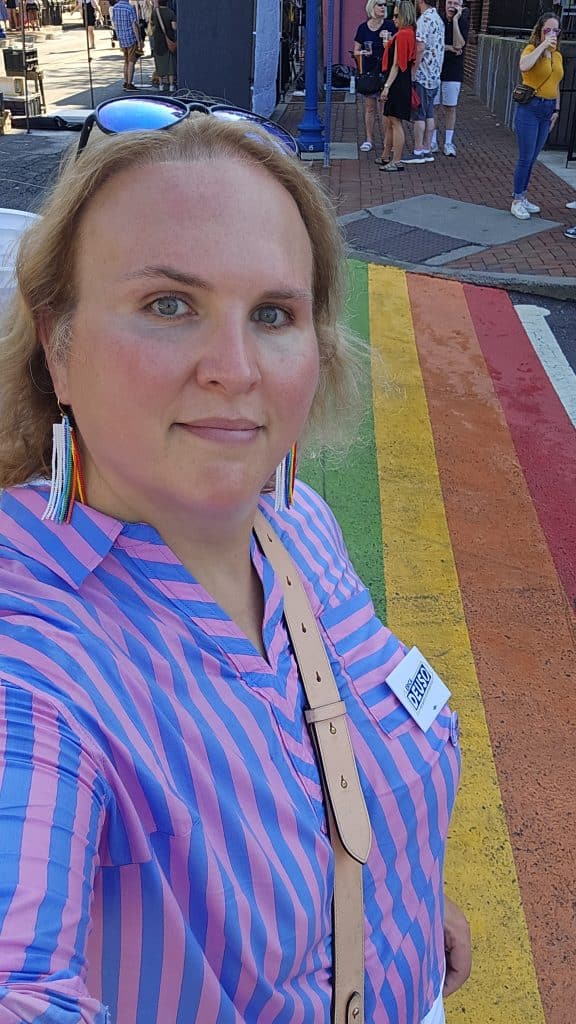
How do you feel about the statewide and national attention you’re receiving after becoming the first out transgender mayor elected in Pennsylvania?
I’ll be honest, I did not expect this kind of attention. It has been a little surprising and pretty heartwarming. I’ve heard from people all over Pennsylvania and all across the country. I’ve even heard from folks overseas, including places where being LGBTQ+ is still a crime. I knew this was historic, so I figured I’d get a few messages, but I didn’t expect this many. I think a lot of people were looking for a bit of good news in a tough time, and somehow my race gave them that.
I guess I never thought it was this big of a deal because I don’t think about my gender identity all that much anymore. It’s just part of who I am. But I know some people still see it as a marker of progress, and this win meant something to them. I’m grateful for every message, every kind word, every bit of support. But at the end of the day, I keep my head down and focus on the work. The title only matters if I use it to make life better for the people who live here.
Your campaign didn’t focus heavily on your identity as a trans, bisexual person. Why did you make that decision? And were there ways that your campaign was informed by your identity?
I kept my campaign focused on what working families here in Downingtown actually talk about at their kitchen tables. Affordability came up first, every time. Housing costs too much. Groceries cost too much. Rent for our small businesses costs too much. People also talked about safety, flooding, and traffic, but the cost of keeping a roof over their heads and food on the table came up more than anything else. And honestly, most people don’t care about my identity. The ones who do are usually focused on the wrong 1% of the population. This race was never about me. It was about the people of this town. I wanted them to see me as their neighbor who listens and shows up.
I guess I never thought it was this big of a deal because I don’t think about my gender identity all that much anymore. It’s just part of who I am.
My identity did shape things, but in quieter ways. I know what it feels like to be part of a group that rarely gets a seat at the table. I know what it feels like to fight for equal rights and still go unheard. That gives me a soft spot for people who feel ignored or brushed aside. It helps me understand why some neighbors feel frustrated when they try to speak up and nothing changes.
I want people here to feel heard and seen. That’s what matters to me.
Was affordability already a conversation in the government of Downingtown or among your local Democrats, or did you feel like you were bringing something new to the table with your campaign?
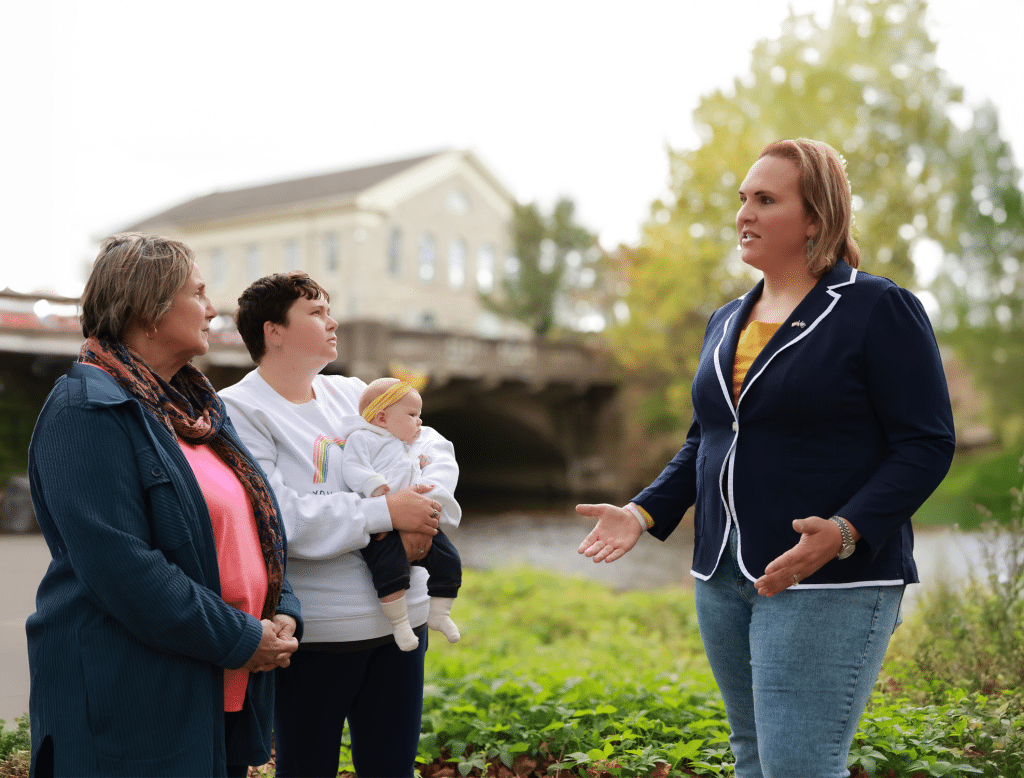
I definitely didn’t hear it from our borough council, from our current mayor. I think I come at it from a different perspective. I didn’t have everything when I was a kid. My family struggled, and I still remember that.
Chester County is the richest county in the Commonwealth, and I think sometimes elected officials lose a little perspective of what it means to really go without. I really wanted to bring that home to the people of Downingtown who are struggling.
It was in contrast to what my opponent was saying, which was: if you can’t afford to live in Downingtown, maybe you should look somewhere else. I think you shouldn’t be struggling to live in your hometown. You shouldn’t be told, hey, go find someplace cheaper. The government should be helping you, and that’s what I’d like to see.
How did you connect with the LGBTQ+ community in Downingtown during your campaign?
I didn’t run any targeted outreach to the LGBTQ+ community. What happened was more natural. People found me. Folks stopped me at events. Parents of transgender kids just talked to me when they saw me out for a run. Gay couples talked with me at Good Neighbor Day or Downingtown Fall Fest. Others reached out through Facebook or social media to share what they were feeling during the race. They wanted to tell me their hopes, their worries, and later their relief. It all just felt very human. Nothing scripted. Just neighbors talking, even if that neighbor lived 2000 miles away!
When I met LGBTQ+ residents at the door, our conversations almost never centered on identity. I remember when I met a transgender man who said later that it felt like a breath of fresh air that I did not make the conversation about being trans. I told him that I was sorry, but that I honestly didn’t know he was a transgender man until he just told me. He lit up! He said it felt good to be seen as himself without the weight of labels.
That is how I connected with the LGBTQ+ community here. It was simple. It was organic. It was people talking to me the same way they talk to any neighbor.
Have you felt pressure to de-center your identity in your campaign process because of the current narratives and environment regarding trans people? Or do you think this would have been your approach regardless of when you had campaigned?
I wanted to run this campaign focused on the issues, but never denying who I am — never trying to downplay my background. So I’m running this campaign and even if I’m talking about something mundane, there was always somebody there who was really negative about who I am or my gender identity, the way that I look, the way that I talk, or the way that I act. And I can see that if I made my identity a bigger part of this campaign, this campaign would have devolved into a big argument about my own humanity—a big argument about whether I belong or I exist. There were people arguing whether or not I even existed as a person. So I felt if I kept the focus on what people care about, it was much harder for people to come back and make it about my identity. They tried, I’ll give them credit. There were people who decided that regardless of what I said, regardless of what I did, they were going to make this election about my identity. They failed, obviously.
I am grateful for the people of Downingtown. They trusted me with something big, and I don’t take that lightly.
The town really cared about the things that I was talking about. They cared about affordability, flooding, our police and our traffic and our roads. You know, that’s what people care about. They want to keep their families safe. They want to put food on the table. They want to keep a roof over their head. Anything else that people want to talk about is just noise.
Tell me more about being a Good Neighbor. What does that mean to you? To Downingtown?
To me, being a Good Neighbor is pretty simple. You look out for the people around you. If someone needs a hand, you help. If something feels off, you check in. And if the town needs you, you show up. That’s how I grew up, and it’s why Downingtown felt like home right away.
And honestly, I think some of our elected officials in Washington and Harrisburg have gotten a little detached from that. I don’t think folks like Donald Trump or Senator Dave McCormick have ever really had to be the kind of good neighbors many of us grow up around. I don’t picture them jumpstarting a neighbor’s car before dawn so they can get to work. I don’t see them dragging branches out of the road in the middle of a storm, or showing up with a shovel when someone’s driveway is buried. People like that have always had the money to pay someone else to handle the hard stuff.
Most of us don’t live in that world. We live in towns where you help the person next door because it’s the right thing to do, and you roll up your sleeves without expecting anything back. Good neighbors get their hands dirty and show up when it matters, and that’s the spirit I bring into the mayor’s office. I try to lead the way people already live here, by listening first, treating folks with respect, helping solve problems, making sure people feel heard, and keeping the focus on what actually makes their lives better. That’s what being a Good Neighbor means to me, and it’s what I see every day in this town.
In what ways should your constituents expect you to stand up for them as the federal government continues to overstep its powers? For example, you’ve said that under your leadership, your police department would not cooperate with ICE “except for where legally obligated.” Would you elaborate on that?
When I talk about standing up for people here, I mean looking out for everyone who calls Downingtown home. Our police department serves and protects all residents and neighbors. Their work depends on trust. People need to feel safe calling 911 without worrying about federal politics.
On ICE, my view is simple: Our police should not act as an arm of federal immigration enforcement. Their job is to keep our neighborhoods safe and respond when someone needs help. The only time we would cooperate with ICE is when the law makes it clear we must. A good example is a dangerous criminal who needs to be arrested. In that situation, the criminal charges come first. Only after those charges are handled would any civil immigration issues come into play.
Our residents should feel comfortable calling our police, even if, especially if, ICE is trying to detain someone. Our police can inspect warrants, inspect immigration officer’s credentials to ensure they are actually legit, and protect residents against the blatant violence used by ICE in many instances. And, if a crime is committed against a resident, our police will be fully within their jurisdiction to make arrests of federal agents who break the law.
I will push back when outside forces try to drag Downingtown into national fights that do not help this community. I answer to the people who live here. My job is to protect them, support them, and keep this town a place where every neighbor feels safe.
Finally, did you have anything else that you wanted to add that we didn’t touch on?
I guess the only thing I would add is this. I am grateful for the people of Downingtown. They trusted me with something big, and I don’t take that lightly. I want them to know I am going to show up every day, listen, and do the work. I also want folks to know that this job is not about being the first anything. It is about making sure their lives feel a little easier, a little safer, and a little more stable.
And if anyone ever has a question, a worry, or an idea, I hope they reach out. I want my office to feel like a place where neighbors can walk in and be heard. That is the kind of town we are, and that is the kind of mayor I plan to be.
